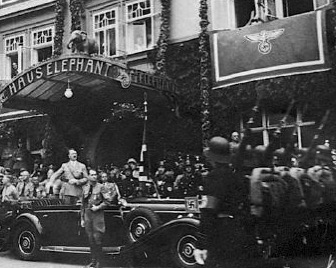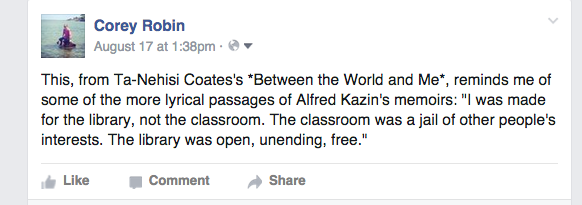No one knows the power of literature better than the censor. That’s why he burns books: to fight fire with fire, to stop them from setting the world aflame. Or becomes an editor: Stalin, we now know, excised words from texts with about as much energy and attention as he excised men and women from the world. As Bertolt Brecht archly noted of the East German regime’s efforts to control what he wrote: “Where else in the world can you find a government that shows such interest and pays such attention to artists?”
This week, as I head back to the classroom amid controversy — from Columbia toBerkeley to Duke — over what college students will or will not read, I’m mindful of Brecht’s observation. Could it be that the men and women who most appreciate what we, professors of the humanities and social sciences, have to offer are the students who’ve been vilified as coddled and cosseted, demanding trigger warnings on syllabi or simply refusing to read the books we’ve assigned them because those books make them uncomfortable? Could it be that they, like the censor, are the ones who truly understand the power of the books we teach?
…
That’s why I’m less bothered than some of my colleagues are by today’s students. I see in their fear a premonition of what a book — and an education — can do. We live in an age, we’re often told, where reading has become rote or has simply disappeared. Half our students don’t do the reading; the other half submit dutiful book reports, barely registering the effect of what they’ve read.
Yet here are students who seem to understand, however faintly and problematically, what the literary critic Alfred Kazin called “the raw hurting power that a book could have over me.” They seem like throwbacks, these students: not to the Midwestern evangelism of Elmer Gantry but to the urban hothouse of the New York Intellectuals, those anxious and oversexed minds of mid-century for whom a Henry James novel or Walt Whitman poem was a holy fire. “Writing Was Everything“: that’s how Kazin titled one of his memoirs. In their refusal to read a book, in their insistence that professors warn them of the trauma it may contain, that is what students are running away from: writing that consumes them, writing that’s everything.
…
Even so, there’s a greater threat to reading and readers, to education itself, than trigger warnings or students objecting to a text. And that is the downsizing administrator, the economizing politician, who refuses to believe there’s any value in reading a difficult text at all. While the media debates Mr. Grasso’s refusal, I, as chair of my department, anxiously scrutinize our daily enrollment reports, knowing I have to defend courses with 12 students from administrative economizers — simply because the intimacy, attention and focus of a senior seminar doesn’t register as a value to men who can only see value when it is expressed as a number on a spreadsheet. Given the choice of defending a book to an aggrieved student or a course to a phlegmatic accountant, I’ll take the student any day: at least she and I agree that the book in question has power, and the experience of reading it, reality.
In this age of the neoliberal university, these students may be our best allies, for they seem to be among the few who understand that what we do matters. The administrator and the politician, the trustee and the pundit, think that we professors are worse than subversive; we’re useless. These students, by contrast, think we’re dangerous. Rather than dismissing them, maybe we should say: Thank you, we thought no one was listening, we thought no one cared. And then turn around and figure out how to use this as, ahem, a teachable moment — about the radioactivity of books and the fact that radiation has its uses.



